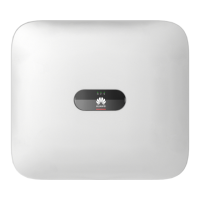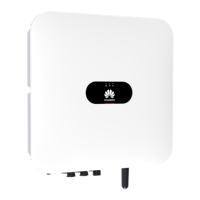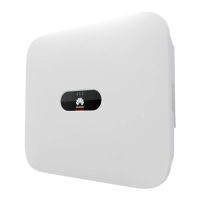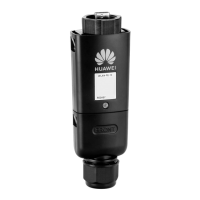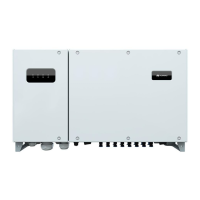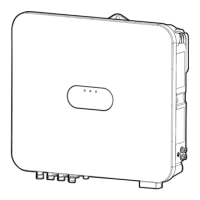LUNA2000-200KWH-2H1 Smart String ESS
User Manual
4 SmartLogger Web-based Deployment
Copyright © Huawei Technologies Co., Ltd.
target value of the scheduled active power: If the
battery power is insufficient or the Smart PCS is
limiting power, the system gets power from the grid as
much as possible; if the scheduling target is met and
the battery has excessive power, the PV power is used
to charge the batteries.
− The working mode is set to Maximum self-consumption.
Maximum grid
power during
battery discharge
Control the maximum target grid power when the grid-connection
point has zero power.
Allowed fluctuation of the target grid power for the grid-connection
point
Automatic SOC
calibration
EnabledAutomatic SOC calibration is enabled. If the total charge
and discharge energy reaches the threshold or the calibration
function has not been triggered for 30 days, the SOC automatic
calibration is performed. The SOC automatic calibration is
performed in battery racks. During calibration, the cut-off SOC
settings will be ineffective.
DisabledAutomatic SOC calibration is disabled.
− The working mode is set toTOU.。
Preferred use of
surplus PV power
Charge:When the PV energy is greater than the loads, excess
PV energy is used to charge the ESS. After the maximum
charge power is reached or the ESS is fully charged, the excess
PV energy is fed to the grid.
Fed to grid:When the generated PV energy is greater than the
loads, the excess PV energy is preferentially fed to the grid.
When the maximum output power of the inverter/Smart PCS is
reached, the excess energy is used to charge the batteries. This
setting is applicable to the scenario where the feed-in tariff
(FIT) is higher than the electricity price. The ESS is used only
for backup power.
Maximum charge
power of grid
Set the maximum power of the grid during battery charging.
Maximum grid
power during battery
discharge
Control the maximum target grid power when the grid-connection
point has zero power.

